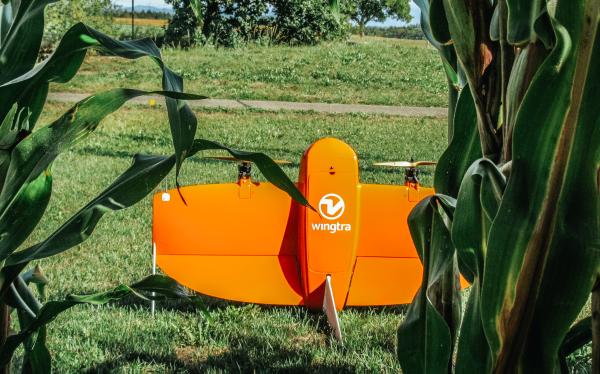Completed NRP 73 research project: Digital innovations for sustainable agriculture
16.12.2022
New technologies are making it possible to use agricultural resources such as fertilisers and plant protection agents with greater precision, thereby increasing the environmental compatibility of farming without reducing food output. A holistic approach to technical, agronomic and socio-economic factors can create a framework within which added value can be generated for a sustainable agricultural and agri-food system.
For example, sensors can accurately measure uneven nitrogen compound distribution in fields and also emissions of these compounds, while information from satellites or drones can help to significantly reduce nitrogen use with no drop in productivity. Greenhouse gas measurements confirmed that optimising fertiliser use can benefit the environment.
Although precision agriculture has considerable potential, the financial benefits to farmers are often still too small to justify investing large sums in digital technologies. However, cooperation between farms and state support are increasing demand. Surveys show that Swiss farmers are open to the idea of precision agriculture if the technology is reliable, technical support is available and the investment is worthwhile.
The project is creating the knowledge base for the use of precision technologies in Swiss agriculture. The findings show that government must play a key role in realising the environmental and economic potential of digital technologies. All stakeholders need to work together to enable new information and communication technologies to play their part in sustainable agriculture.
A video featuring Prof. Robert Finger explains the approaches used by the project. A podcast on the subject will be released in early 2023.
More information:
More information about the research project
Video “NRP 73: Digital innovations for a sustainable agriculture”
Current publications:
Maier, Regine Hörtnagl, Lukas; Buchmann, Nina (2022). Greenhouse gas fluxes (CO2, N2O and CH4) of pea and maize during two cropping seasons: Drivers, budgets, and emission factors for nitrous oxide. In Science of The Total Environment, 849, 157541–157541.
Späti, Karin; Huber, Robert; Logar, Ivana; Finger, Robert (2022). Incentivizing the adoption of precision agricultural technologies in small‐scaled farming systems: A choice experiment approach. In Journal of the Agricultural and Applied Economics Association.
Späti, Karin; Huber, Robert; Logar, Ivana; Finger, Robert (2022). Data on the stated adoption decisions of Swiss farmers for variable rate nitrogen fertilization technologies. In Data in Brief, 41, 107979.
Contact:
Prof. Dr. Robert Finger
Agricultural Economics and Policy Group, ETH Zurich
Sonneggstr. 33, 8092 Zürich
+41 44 632 53 92
rofinger@ethz.ch
